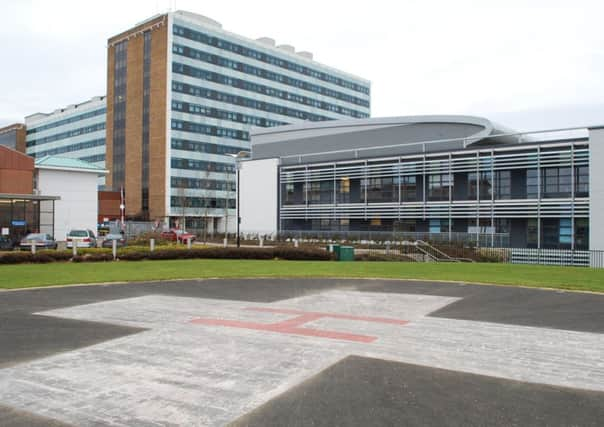A&E still under pressure but situation improving


Twenty people were waiting in A&Es locally compared with 25 in Belfast, 30 in the Northern and Southern Trusts and 34 in the South Eastern Trust.
Meanwhile, on the same day the Western Trust discharged more people who had required a package of care or other support before being let out of hospital than anywhere bar the South Eastern Trust.
Advertisement
Hide AdAdvertisement
Hide AdIn the Western Trust there were 53 complex delayed discharges compared with 75 in the South Eastern, 48 in Belfast and 41 in the Northern.
Michael Bloomfield, Director of Performance Management and Corporate Services with the HSCB said: “All Trusts have experienced a challenging two week period as they have seen a seven per cent increase in activity in Emergency Departments compared with the same period last year.
“The Board is continuing to liaise with all Trusts to monitor the situation closely and will do so over the coming days, ensuring appropriate actions are being taken to address the pressures.”
Trusts continue to implement their escalation plans to increase capacity to improve the flow of patients within hospitals using a range of actions including: creating additional in-patient bed capacity; securing additional clinical staff to both care for patients and assist in the discharge process; postponing some non-urgent elective operations; undertaking additional ward rounds and reviews of patients.
Advertisement
Hide AdAdvertisement
Hide AdMr Bloomfield continued: “It is regrettable that some patients have had their non-urgent elective operations postponed as part of Trusts’ normal escalation arrangements.
“Trusts have advised the Board that they will be doing all they can to ensure that any procedures that have been postponed are rescheduled as soon as possible and those affected kept informed.”
The number of cancellations varies across Trusts and Trusts are reviewing the position daily to minimise the impact on patients.
Those people affected have been contacted by Trusts by telephone or by text in some instances whereby individuals did not answer calls.
Advertisement
Hide AdAdvertisement
Hide AdMr Bloomfield added: “Patients in Emergency Departments who need to be admitted will continue to be placed in beds based on their identified clinical priority.
“It is entirely appropriate that patients are prioritised in this way, though it may mean that some patients wait longer than others before being allocated a bed.
“In order to help ease the current pressures on our Emergency Departments, which provide the highest level of emergency care for patients, especially those with sudden and acute illness or severe trauma, the Board would encourage members of the public who require care to ensure they choose the right care service for them in line with our current ‘Choose Well’ campaign.
“Many common ailments can be treated effectively through self-care at home or by seeking advice from your local pharmacist; however those with serious concerns about their health should of course always consult their GP or an Out-of-hours service such as Minor Injury Units or GP Out-of-Hours.
Advertisement
Hide AdAdvertisement
Hide Ad“Emergency and 999 services are for life threatening and serious conditions. By choosing the right care for you, this will help ensure that Emergency Departments are used appropriately and ease pressures on the service,” he said.
For more information about Choose Well and the range of services available visit www.nidirect.gov.uk/choosewell